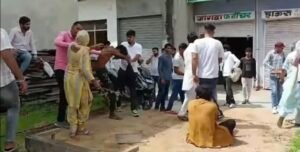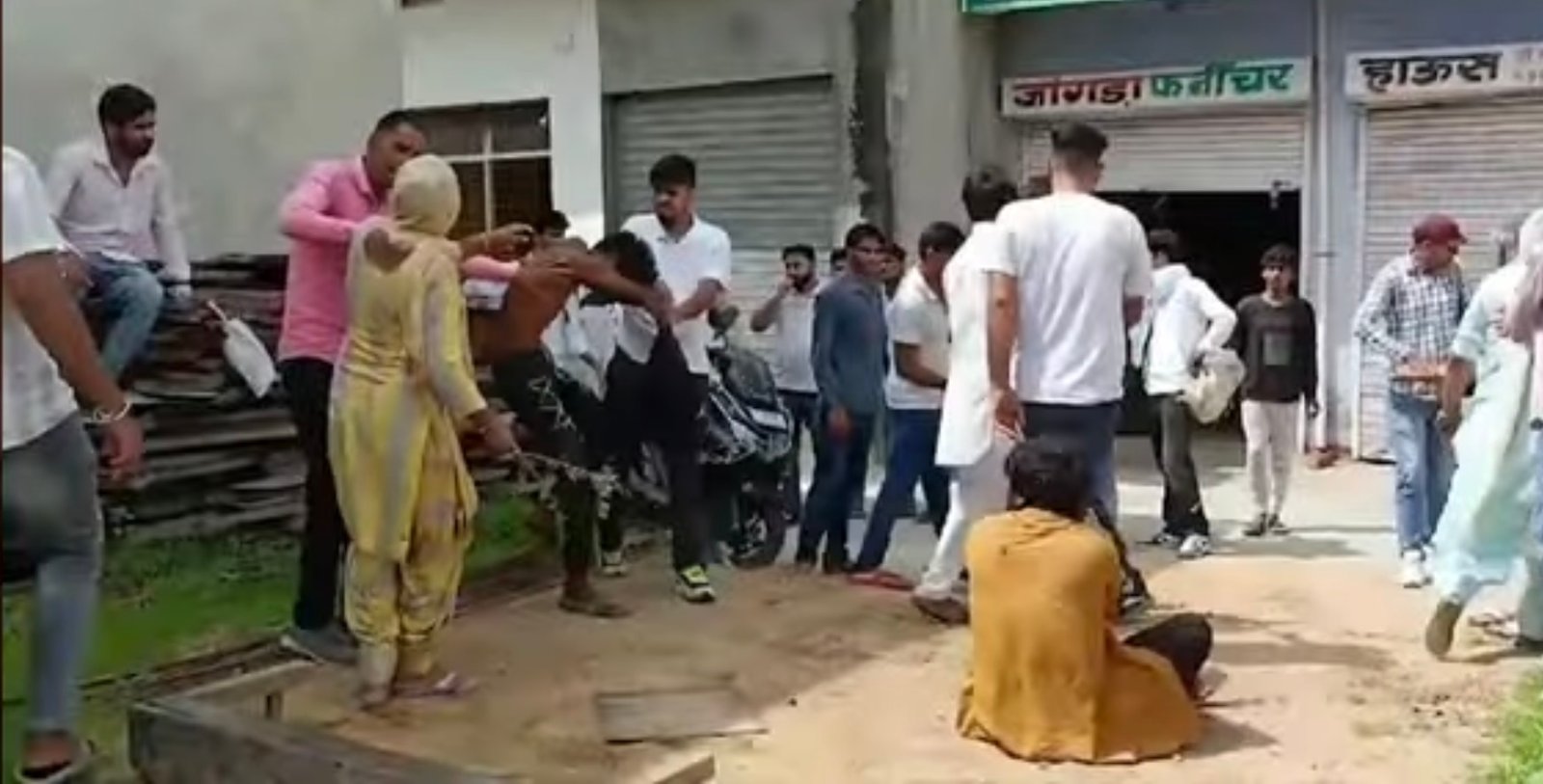Migrant Worker Lynched in Haryana Over Beef Suspicion; 2 Minors Among 7 Arrested

A migrant worker from West Bengal was lynched in Haryana’s Charkhi Dadri district on August 27, 2024, by a group of individuals who has suspected him of consuming beef. The victim, Sabir Malik, a 30-year-old ragpicker, was reportedly lured by the assailants under the pretense of selling empty plastic bottles before being brutally assaulted. This heinous act, fueled by religious and cultural animosities, has once again brought to the forefront the growing menace of mob violence and cow vigilantism in India.
The Incident
According to local police reports, Sabir Malik A migrate worker was living in a shanty near Bandhra village in Charkhi Dadri district, where he eked out a living by collecting waste materials. On the fateful day, he was approached by a group of seven individuals, including two minors, who falsely promised to sell him plastic bottles, a common item in his trade. Instead, they led him to an isolated location where they accused him of consuming beef, a practice that has become increasingly controversial in India, especially in states like Haryana where cow slaughter is strictly prohibited.
The group, driven by suspicion and emboldened by their vigilante beliefs, began to mercilessly beat a migrate worker Malik Despite the intervention of some local residents who tried to stop the violence, the group took Malik to another location where the assault continued. The brutal attack eventually led to Malik’s death. The assailants, however, fled the scene, leaving Malik’s lifeless body behind.
Arrests and Legal Action
In the aftermath of the lynching a migrate worker , the Haryana police acted swiftly to apprehend the suspects. Seven individuals were arrested, including two minors. The police have registered a case against the accused under various sections of the Bharatiya Nyaya Sanhita (BNS), the newly introduced criminal code that replaces the Indian Penal Code. The charges include murder, kidnapping, and other serious offenses related to mob violence.
The police investigation is ongoing, and further details are being gathered to understand the full extent of the crime. Authorities have also taken measures to ensure that such incidents do not recur, although the effectiveness of these measures remains to be seen.
Context and Reactions
This incident is not an isolated case. Over the past decade, India has witnessed a disturbing rise in mob lynchings related to allegations of cow slaughter or beef consumption. Cow vigilantism, driven by a mix of religious fervor and extremist nationalism, has resulted in the deaths of several individuals, mostly from marginalized communities like Muslims and Dalits, who are often targeted based on mere suspicion.
In Haryana, such incidents have become alarmingly frequent. Just a year before, in 2023, two Muslim men from Rajasthan were abducted and burned to death by a cow vigilante group in the state. Despite public outcry and widespread condemnation, these vigilante groups continue to operate with a sense of impunity, often taking the law into their own hands.
The lynching of Sabir Malik has sparked outrage across the country. Human rights activists and opposition leaders have condemned the incident, calling for strict action against the perpetrators and the dismantling of vigilante groups. They argue that the rise in such crimes is a direct result of the government’s failure to curb extremist ideologies that promote hate and violence.
The Broader Implications
The rise of cow vigilantism and mob violence in India poses serious threats to the country’s social fabric and rule of law. It reflects a growing intolerance and communalism that is tearing apart the nation’s secular values. The lynching of individuals based on unverified allegations not only undermines the legal system but also creates an atmosphere of fear and mistrust among various communities.
The incident in Charkhi Dadri is a grim reminder that more needs to be done to protect vulnerable communities from such violent acts. While arrests have been made, it is crucial that the legal process is carried out swiftly and fairly to ensure justice for the victim and to send a strong message against such acts of violence.
As the investigation continues, there is hope that the authorities will take firm action to prevent future incidents of this nature. However, addressing the root causes of this violence, including the spread of extremist ideologies and the lack of accountability for vigilante groups, remains a significant challenge for both the state and central governments.
The lynching of Sabir Malik a migrate worker is a tragic and stark reminder of the dangers of unchecked vigilante justice in India. It is imperative that the country confronts this growing menace with determination and resolves to protect the rights and lives of all its citizens, regardless of their religion or social standing.
Also read:
Russian Mi-8T Helicopter Disappears: Search and Rescue Operations Underway




